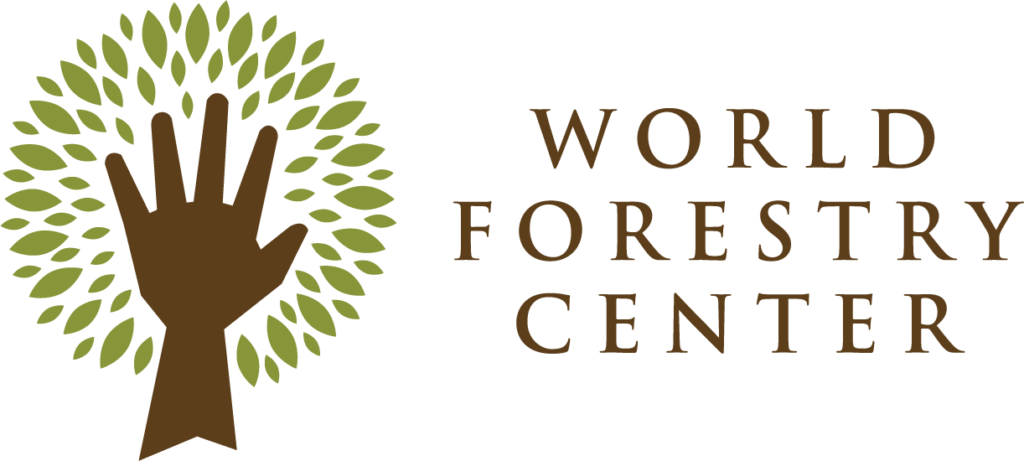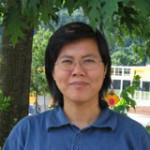Fellowship Alumni

Filter by:
Or by:
Andres Alarcon | Chile
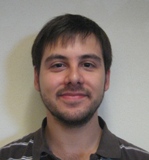 2013, Chile, WFI Alumni
2013, Chile, WFI Alumni
andres.alarcon@woodtechms.com
Andres completed a six month Fellowship in March 2013. He has an Industrial Engineering degree from the Pontificia Universidad Catolica de Chile – Santiago, Chile and has been working for Chilean company Woodtech Measurement Solutions since October of 2010 as a Software Engineer. During his Fellowship, Andres studied the various manual log scaling methods used in the PNW. His company makes digital log-scaling equipment and the knowledge gained from his research at WFI will help him better serve the needs of his current and future customers.
Elikia Amani Zahinda | DR Congo
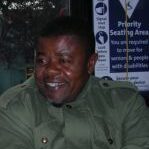 2009, DR Congo, WFI Alumni
2009, DR Congo, WFI Alumni
elkiamani@yahoo.fr
Elikia completed a 6-month fellowship program studying sustainable community forestry management practices in 2009. He returned home to DR Congo with plans to implement forest policy change to combat illegal logging and to help establish and improve sustainable forestry management plans.
Mario Angel | Chile
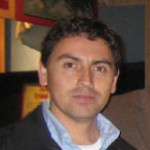 2001, Chile, WFI Alumni
2001, Chile, WFI Alumni
mario.angel@woodtechms.com
Mario worked as both a Fellow 2001 and as a Program Manager at WFI. In 2009 he founded Angel Business & Consulting LLC to provide consulting services for the forest product and renewable energy industries. Mario assists companies doing business in both Latin America and North America to make informed decisions based upon research, analysis and recommendations. He works on many projects related to lumber, plywood & veneer, OSB, MDF and particleboard production and sales as well as projects related to bio-energy and wood fiber supply & demand. He is a regular writer for Lignum, the most important magazine for the Chilean forest industry. During his years at WFI he spoke at conferences in Brazil, Mexico, and the U.S.
Kwangho Baek | South Korea
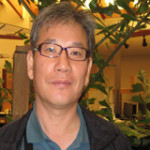 2011, South Korea, WFI Alumni
2011, South Korea, WFI Alumni
skg32fa@forest.go.kr
Kwangho Baek was a Fellow for 18 months from Jan. 2011 to June 2012. He is an officer in the International Cooperation Division of the Korean Forest Service in Daejeon, Korea. While at WFI he studied biomass policies and incentive programs used in the U.S. and researched how Korea might further become involved in the biomass industry. Kwangho returned to Korea to resume his work with the Korean Forest Service.
Sue Baker | Australia
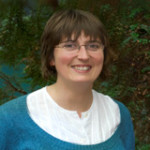 2009, Australia, WFI Alumni
2009, Australia, WFI Alumni
bakers@utas.edu.au
Dr. Sue Baker finished her one-year Fellowship in January 2011. Her project at WFI was a study of variable retention silviculture methods and practices in the greater Pacific Northwest. Sue was supported jointly by Forest and Wood Products Australia and the Gottstein Trust. In 2012 she awarded a Fulbright Post-doctoral scholarship to continue conducting research in variable retention forestry with Washington Department of Natural Resources. Sue is currently a Research Fellow at University of Tasmania, looking at the impacts of forest management practices on ground-active beetles.
Luke Balacombe | Australia
 2002, Australia, WFI Alumni
2002, Australia, WFI Alumni
lbalcombe@hotmail.com
Luke has 16 years experience as an Environmental Advisor and Consultant for construction, energy and resources, oil and gas projects. He is currently an environmental consultant at B2B Environmental Surveys based in Brisbane, Australia, where he conducts research and development of aerial imaging, environmental surveys and data-driven GIS innovations. Previously he was an environmental advisor at QGC, a senior environmental scientist at Unidel Group, and an environmental advisor at Powerlink Queensland.
Richard Banda | Malawi
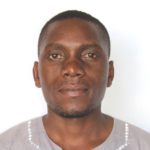 2019, Malawi, WFI Alumni
2019, Malawi, WFI Alumni
Richard Banda holds a Bachelor of Science in Forestry and a Diploma in Agriculture and Natural Resources Management. Richard most recently worked at Alliance One as a Forestry Officer for the company’s reforestation project in Viphya Plantations, the largest forestry plantation in Malawi. In addition, he has worked at Chitakale Tea Plantations in Mulanje as a Field Officer and at the Ministry of Agriculture as an Agriculture Extension Development Officer. Richard is also working as a volunteer at Wildlife and Environmental Society of Malawi, Mzuzu Branch as a Project Officer. Working with these organizations has given Richard experience in designing, implementing, and evaluating integrated developmental programs focusing on agriculture, rural development, and natural resources management. During his Fellowship, Richard intends to carry out a study to help plantation growers understand their cost of production and selling prices so that they can make appropriate management decisions that are critical to remaining competitive.
Shreejita Basu | India
 2017, India, WFI Alumni
2017, India, WFI Alumni
shreejita.basu@gmail.com
Shreejita Basu is an environmental engineer from New Delhi, India. She received her PhD from the Indian Institute of Technology (Delhi) and has been working on understanding the role that forestry can play in carbon markets in her country. In 2017, Shreejita’s Fellowship project focused on learning how American non-profits in natural resources operate. Shreejita followed up her time at WFI with a six-month fellowship at Sustainable Northwest, on the Northwest Community Forest Coalition (NWCFC) project. NWCFC focuses on supporting the emergence, development and management of community forests in Pacific Northwest. As a community forest fellow, Shreejita will be working on protection of water quality in the drinking water watersheds along the Oregon coast.
Alexandre Battistella | Brazil
 1994, Brazil, WFI Alumni
1994, Brazil, WFI Alumni
alexandre@battistella.com.br
After spending a couple of years traveling around the world selling wood products, Alex recently spent 12 months working in the forest (logging, selling and buying timber). Alex is currently the Operation Director for Battistella Ind. e Com. Ltda in Rio Negrhinho, Brazil. During his Fellowship in 1994-1995, Alexandre authored the “Brazil Country Report” and participated in a Weyerhaeuser training program.
Marco Bernal | Mexico
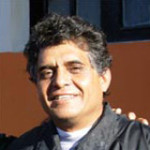 2000, Mexico, WFI Alumni
2000, Mexico, WFI Alumni
marcoa_bernalh@hotmail.com
Marco Bernal completed a one-year fellowship in 2000-2001 involving the Monarch butterfly reserves in Mexico. He is still consulting in Mexico on projects involving the Monarchs.
Kari Brueckner | Germany
 2009, Germany, WFI Alumni
2009, Germany, WFI Alumni
schlummerer@gmx.de
Kati spent her six-month fellowship at WFI in 2009 researching the discourse that led to the adoption and implementation of the Northwest Forest Plan. The focus of her study was on the course of scientific debate amongst policy advisors, biological scientists, and communities impacted by the plan. She also looked at external factors influencing the creation of this management plan such as funding, political requirements, and public expectations and how all these affected the scientific discourse.
Jeen Bunnik | Netherlands
 2018, Netherlands, WFI Alumni
2018, Netherlands, WFI Alumni
jeen@houtkoperijbunnik.nl
Jeen Bunnik is a procurement forester for Houthandel Bunnik, a family-owned business established in the Netherlands in 1900. As the fifth generation-owner, Jeen serves as the liaison between procurement and Houthandel Bunnik’s internal and external timber product manufacturing. He is responsible for the procurement of logs and dimensional lumber originating from Northwest European temperate forests that go to domestic, European, and export markets. Jeen holds dual Bachelors degrees in Business Administration and Forestry and an Engineering degree in International Timber Trade. During his Fellowship in 2018, Jeen did a Comparison of Forest Policy and Operations Between the Pacific Northwest and Northern Europe.
Mariane Bueno de Camargo | Brazil
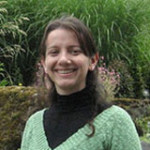 2006, Brazil, WFI Alumni
2006, Brazil, WFI Alumni
maricamargo@klabin.com.br
During her Fellowship in 2007-2008, Mariane conducted a trade study on Brazilian moulding and millwork. Since 2011 she has worked for KLABIN S/A in Parana State, Brazil where she is responsible for forest protection, pest and disease monitoring and environmental zoning. KLABIN S/A is the largest paper company in Brazil.
Hebe Carus | United Kingdom
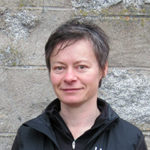 2014, United Kingdom, WFI Alumni
2014, United Kingdom, WFI Alumni
hcarus@scottishwildlifetrust.org.uk
Hebe Carus completed her Fellowship in 2017 in Integrating Wildlife Objectives into Forestry Systems Across Multiple Ownership Landscapes. Inspired by her experiences, she returned to Scotland and is now working with Forestry and Land Scotland (a cross between the US Forest Service and ODF) as the National Open Habitats Adviser. There she is working with multi-disciplinary teams to realize nature benefits alongside timber and carbon outputs within the National Forest Estate which covers 8% of Scotland, a third of which is open habitat. She continues to reach out and work in partnership with other landowners, and promote collaborative
Li-Wan Chang | Taiwan
 2013, Taiwan, WFI Alumni
2013, Taiwan, WFI Alumni
liwanc@tfri.gov.tw
Li-Wan Chang finished her 6 month Fellowship program in November 2013. Li-Wan is a research assistant at the Taiwan Forestry Research Institute in Taipei. There she does research on forest stand dynamics in response to natural disturbances. She also manages the Institute’s extensive library and helps the organization with international cooperation. At WFI, Li-Wan studied the similarities between forest health and management issues between the US and Taiwan. She concluded that while many things are similar, public perception of forestry and forestry issues is very different between the two and that perception plays a major role in how forests are ultimately managed.
Fen-hui Chen | Taiwan
 2019, Taiwan, WFI Alumni
2019, Taiwan, WFI Alumni
Fen-hui Chen received her Master of Science in Plant Taxonomy in England and her PhD in Forest Science at Oregon State University. She has been working as a contract researcher in the Silviculture Division of the Taiwan Forestry Research Institute (TFRI), the sole governmental research institute focusing on forestry, since 2010. One of Fen-hui’s main responsibilities is to provide recommendations to the government on forestry policy based on research data. Fen-hui’s research interests include agroforestry, restoration ecology, and vegetation ecology. She especially wants to promote the concept of agroforestry in Taiwan. During her Fellowship, Fen-hui will conduct a study on Sustainable Management, Ecological Monitoring, and Extension Strategy in Agroforestry.
Yen-Chang Chen | Taiwan
 2001, Taiwan, WFI Alumni
2001, Taiwan, WFI Alumni
ycchen@tfri.gov.tw
Yen-Chang has recently been promoted to Chief of Fu-Shan Research Center, an internationally renowned research forest under the Taiwan Forestry Research Institute (TFRI) in Taiwan.
Katie Collins | Australia
 1999, Australia, WFI Alumni
1999, Australia, WFI AlumniKatie.Collins@rfs.nsw.gov.au
Katie is developing plans, policies and procedures relating to bush fire management. In particular bush fire risk management plans, prescribed burning plans and procedures, pre-incident plans. Katie completed her Fellowship in 1999.
Andrea Cornejo | Nicaragua
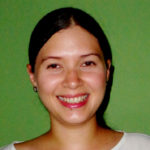 2016, Nicaragua, WFI Alumni
2016, Nicaragua, WFI Alumniiandreacornejo@gmail.com
Andrea is a former WFI International Fellow from Nicaragua who completed her Fellowship in 2016. Her research at WFI compared private forest landowners in Nicaragua and Pacific Northwest. Andrea works as a Researcher at the recently formed Interdisciplinary Institute of Natural Sciences at the University of Central America, Managua, Nicaragua. In this position, she conducts research related to forestry, ecosystem health, and non-timber forest products, as well as teaches as part of the Faculty of Science, Technology, and Environment. In 2017, she launched a Forum on Forests and Sustainable Forest Management, part of a lecture series to create a continuous conversation on forestry-related topics.
Branislav Cvjetkovic | Bosnia-Herzegovina
 2013, Bosnia-Herzegovina, WFI Alumni
2013, Bosnia-Herzegovina, WFI Alumnicvjetkovicb@gmail.com
Branislav completed a five-month Fellowship in October, 2013. Branislav is a research assistant at the Univeristy of Banja Luka where he researches seedling technology and forest genetics. Branislav came to WFI supported by the WFI Friends and Alumni Fund and studied technology transfer of forest genetics in light of climate change. He visited the science of assisted migration and developed ideas on how Bosnia could implement this science to conserve several at-risk forest tree species in Bosnia. Branislav returned home to begin his PhD work and continues serving as a research assistant at the university.
Igor Danilin | Russia
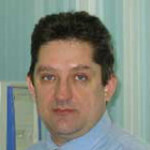 2001, Russia, WFI Alumni
2001, Russia, WFI Alumniimdanilin@hotmail.com
Igor is a Senior Research Scientist at the Siberian Branch of the Russian Academy of Sciences at the V.N. Sukachev Institute of Forest. Igor works in forest biometrics, forest inventory and remote sensing. During his Fellowship in 2001, Igor co-authered a manuscript on Forest Policy in Siberia, titled: “Siberian Expectations: An Overview of Regional Forest Policy and Sustainable Forest Management“, which can be downloaded from WFI’s Special Reports page.
Gustavo Daniluk | Uruguay
 2001, Uruguay, WFI Alumni
2001, Uruguay, WFI Alumnigdaniluk@adinet.com.uy
Dr. Gustavo Daniluk is a Professor at the University of Republic (Universidad de la Republica) in Montevideo, where he teaches harvesting and forest certification. Additionally, Gustavo works for SGS Qualifor as an FSC forest auditor in Uruguay, Chile, Argentina and Panama. During his fellowship in 2001-2002 Gustavo developed a Best Management Practices Manual for Uruguay.
Temitope Dauda | Nigeria
 2019, Nigeria, WFI Alumni
2019, Nigeria, WFI AlumniTemitope Dauda holds a Bachelor of Science degree in Forest Resources Management and a Masters in Forest Economics and Management from the University of Ibadan in Nigeria, where she is currently a PhD Candidate. She also serves as faculty at Bayero University Kano where she teaches Forest Economics and Management. Temitope has conducted research on indigenous tree species in southwestern Nigeria and on biodiversity assessment of different agro-ecosystems in northwestern Nigeria. At the World Forest Institute, Temitope will be conducting research on the Application of a Landscape Approach to Designing Multifunctional Landscapes with a focus on incorporating socio-ecological systems of landscapes into the design and management of multifunctional landscapes.
Zhongyuan Ding | China
 2019, China, WFI Alumni
2019, China, WFI AlumniZhongyuan Ding works in the Human Resources Division of the Chinese Academy of Forestry. He has experience in capacity-building for early-career forest scientists and managing programs aiming at enhancing communication and cooperation between forest scientists at research institutes and technicians in the field. Zhongyuan holds a Master of Environmental Science from Lanzhou University. His project at the World Forest Institute is titled “Human Resources Management and Employee Training & Development Underpinning Forestry Research & Development” and aims to investigate how to better engage young professionals in forest management to attain a high quality and sustainable workforce and to enable them to promote productivity and creativity in forestry research and development. Zhongyuan plans to use the networking opportunities provided through the Fellowship to know more about applicable platforms and resources to this end.
Ke Dong | China
 2009, China, WFI Alumni
2009, China, WFI Alumnikdong_wwf@hotmail.com
Ke Dong finished a very successful 18-month fellowship in October 2010. Her project of learning about payments for ecosystem services was complemented by practical work experience regarding FSC certification in China. She returned to China to put her new knowledge to work in the natural resource and conservation sectors.
Moacyr Fantini | Brazil
moacyr.fantini@storaenso.com
During his Fellowship in 1999, Moacyr researched the importance of Eucalyptus solid and engineered wood products in the US market. He has worked in plantations management at various forestry companies, including Klabin, Veracel Celulose, and Stora Enso in China. He is currently Director of Forestry in a joint venture between Stora Enso and the Chilean company Arauco in Montes del Plata, Uruguay.
Marguerite Forest | United States
 2013, United States, WFI Alumni
2013, United States, WFI Alumni
mforest@fgcu.edu
Dr. Marguerite Forest spent a three-month summer sabbatical at WFI in 2013. Her research focused on the development of interactive web maps using GIS to track and place all participants in the WFI Fellowship Program, the World Forestry Center’s International Educators Institute, and other group programs. Her web maps will be available on the WFI website soon and will be a lovely visual display of program participants and will allow for better communication among alumni of these programs.
Blair Freeman | Australia
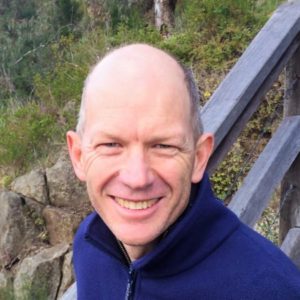 1997, Australia, WFI Alumni
1997, Australia, WFI Alumni
blair.freeman@indufor-ap.com
Blair Freeman served as the Australian forest industry representative at WFI in 1997/98. His final report on Global Warming: Forest-based options for Australia (1997) can be found here. Since then Blair has worked in forest sector consulting in Australia and across the broader Asia Pacific region. His main areas of focus are forest policy, strategic planning, forest resource management and sustainable development. In 2014, Blair joined the Indufor Group and he is now leading Indufor’s work on strategy and sustainability consulting in the Asia Pacific region, based in Melbourne.
Runar Gareyev | United States
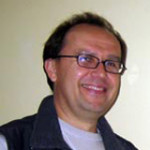 1995, United States, WFI Alumni
1995, United States, WFI Alumnirunar2017@gmail.com
Runar is a GIS specialist and database administrator for Metro, a regional government office in Portland, Oregon. He was a Fellow from 1995-1996.
Cristhian Gutierrez Patzi | Bolivia
 2012, Bolivia, WFI Alumni
2012, Bolivia, WFI Alumnicristhian4184@yahoo.es
Cristhian finished a six-month fellowship in the fall of 2012. He studied marketing strategies of small forestry businesses and family forestland owners. From his research he developed a general marketing plan that can be implemented by small forestry companies and one that he hopes will help communites in Bolivia sell their wood products. Cristhain is a Project Officer for the Canadian-based company Co2Impact in LaPaz, Bolivia. His Fellowship was sponsored by the International Tropical Timber Organization.
Jes Munk Hansen | Denmark
 1994, Denmark, WFI Alumni
1994, Denmark, WFI Alumnijes.hansen@osram.com
Jes is currently the President and CEO of Osram Sylvania Inc. He is the former President and Regional Managing Director for Grundfos North America. Grundfos is a global leader in pumps and pumping systems. During his Fellowship in 1994-1995 Jes researched various projects for Star Shipping, and completed work for WFI clients such as researching pricing for special forest products. After his Fellowship Jes completed a Masters degree in Forestry and an MBA at the London Business School.
Tateki Hata | Japan
 2001, Japan, WFI Alumni
2001, Japan, WFI Alumnitateki@theia.ocn.ne.jp
Tateki is currently a consultant at Spacevision Research Institute Inc. in Osaka. His work involves forest products marketing and development of forest and agricultural area. Tateki has completed research involving the market adaptation and competitiveness of Japanese wood industries. During his Fellowship in 2001-2002 Tateki worked as an Information Specialist and conducted research on US wood supply for the Japanese housing market.
Roslyn Henricks | Australia
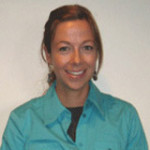 2008, Australia, WFI Alumni
2008, Australia, WFI Alumniroslyn.henricks@gmail.com
Roslyn was at WFI on a 12-month Fellowship supported jointly by the J.W. Gottstein Memorial Trust and Forest & Wood Products Australia. She completed research on the visual implications of plantation forestry in Austrailia. This research touched on the social and political issues of plantation forestry as well as the practical components of silviculture and management. During her fellowship at WFI she produced a visual management guide that will help field managers aesthetically plan their plantations.
Oscar Hernandez | Guatemala
 2017, Guatemala, WFI Alumni
2017, Guatemala, WFI Alumniohernandez@aldes.org.gt
Oscar Hernandez finished his WFI Fellowship Program in 2017. During his 6-months in Portland he analyze best practices for forest management in the PNW that have a clear potential for application in the Guatemalan forest sector, including government, private and community sub-sectors. The research scope included policies, practices, economic and social analysis of forest management, at urban and rural scales. After his program Oscar became the Technical Advisor of FEDECOCAGUA (Coop of Coffee Coops) to implement the Food, Agriculture, Income and Resilience (FAIR) Project, funded by the US Agency for International Development (USAID). The FAIR project will support thousands of small coffee farmers for 5 years to increase their economic growth and to reduce malnutrition. The experience at WFI allowed Oscar to better understand the USAID approach and work style. Oscar considers himself an agent of change, with solid values, creative and innovating, with 18+ years of experience in international cooperation projects based out of Guatemala City, Guatemala. He has successfully facilitated rural development and climate change initiatives with IADB, United Nations, Rainforest Alliance and others. He has also served as technical advisor of GoG Ministers. He expects to broaden his professional and personal horizon and “rethink” the business as usual model.
Binod Heyojoo | Nepal
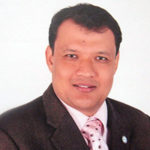 2017, Nepal, WFI Alumni
2017, Nepal, WFI Alumnibpheyojoo@iofpc.edu.np
Binod Heyojoo finished his 6-month WFI Fellowship in 2017. At WFI, his learned about wildfire management challenges, initiatives and success stories from the PNW to take lessons learned back to Nepal for their national forest fire management planning. Binod returned to his teaching duties as a professor at the Institute of Forestry (IOF) in Pokhara, Nepal. He will be starting his PhD in Forestry in June of 2018 at Tribhuvan University in Nepal. His PhD research thesis will expand on the project he did at WFI in Forest Fire Management.
Ning Hou | China
 2011, China, WFI Alumni
2011, China, WFI Alumnihouning2001@126.com
Dr. Ning Hou is a professor of forest economics at Beijing Forestry University in Beijing, China. She completed a one year Fellowship in April 2012. While at WFI, Ning researched carbon sequestration in western forests and explored markets for forest carbon in the United States. Ning resumed her teaching duties upon return to China and continues to teach several classes every semester.
Rebecca Hsu | Taiwan
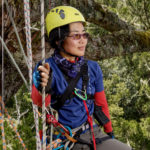 2016, Taiwan, WFI Alumni
2016, Taiwan, WFI Alumniecogarden@gmail.com
Rebecca is from Taiwan and completed a 6-month Fellowship in 2016. Her research during her fellowship focused on investigating biodiversity in the forest canopy. After her fellowship, Rebecca went back to work for the Taiwan Forestry Research Institute. In 2017, she coordinated a new project, the Taiwan Tree Project, in partnership with Australian experts to conduct a portrait photo of Taiwania, one of the tallest conifers in East Asia. The project was very successful and raised more than one million New Taiwan Dollars for environmental conservation in Taiwan.
Rainer Hummel | United States
 1994, United States, WFI Alumni
1994, United States, WFI Alumni
rainer.hummel@dnr.wa.gov
Rainer Hummel works as a Forest Practices District Manager for the Washington Department of Natural Resources (DNR). His office is in the hamlet of Husum on the White Salmon River, but his territory covers the southeast region of the state. Rainer and his wife, Susan, live nearby on property along the aptly named Rattlesnake Creek where they manage farm and forest. Rainer’s education in forestry has allowed him to work in many settings and with a wide array of subjects in natural as well as social sciences. After graduating with a M.Sc. in Forest Sciences from the University of Freiburg in Germany, Rainer spent a year at the World Forest Institute in Portland, OR in the international fellowship program. Subsequent project work for private sector clients led to job offers, permanent residency, and eventual citizenship. After several years working in both the US and Germany as account manager with domestic and international clients in the forest products industry, Rainer changed pace in 2006. He accepted an offer to return to his Alma Mater in the Black Forest as program manager for a newly created masters course in environmental governance for a three-year term. The Pacific Northwest had never lost its allure, however, and when we moved back we made our home in the Columbia River Gorge. Rainer’s work with private forest owners in the area eventually led to the opportunity to work for DNR in forest practices. When not busy with land management, Rainer enjoys running, backcountry skiing, and climbing trees. On December 6th, he has been known to help St. Nikolaus visit bilingual children in the greater Portland area to celebrate the holiday season.
Claire Huxtable | Canada
 1995, Canada, WFI Alumni
1995, Canada, WFI Alumnichuxtable@era-research.com
After her WFI Fellowship in 1995-1996, Claire became a portfolio analyst and account manager for Hancock Timber Resource Group, one of the world’s largest timberland investment management organizations. She is currently an Analyst with Equity Research Associates in Vancouver, BC, Canada. Prior to joining ERA Forest Products Research, she was a member of RBC’s top-ranked capital markets forest products research team, where she focused on North American paper and forest products companies. Claire holds a bachelor’s degree in forestry from the University of British Columbia and Laval University, and an MBA from the University of British Columbia. She is a registered professional forester with the Association of British Columbia Forest Professionals, a CFA charterholder, and a member of the Vancouver Society of Financial Analysts.
Eiichi Ishino | Japan
 1998, Japan, WFI Alumni
1998, Japan, WFI AlumniISHINO_eiichi@star.sfc.co.jp
Eiichi works at Sumitomo Forestry, in the Corporate Social Responsibility Department.
Nobutaka Isoda | Japan
 2002, Japan, WFI Alumni
2002, Japan, WFI Alumnin_isoda@sfc.co.jp
Nobutaka works as a Researcher for Sumitomo Forestry Co., Ltd. at their Tsukuba Research Institute. An architect by training, he researches ergonomic solutions for special users of wooden homes, such as the elderly and disabled. Nobutaka researched green building design and techniques during his Fellowship in 2002-2003.
Sudiyah Istichomah | Indonesia
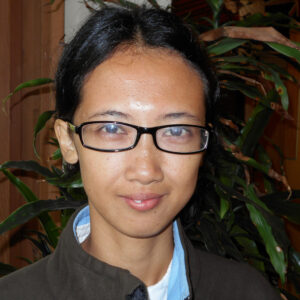 2014, Indonesia, WFI Alumni
2014, Indonesia, WFI Alumninonette262@gmail.com
Sudiyah Istichomah completed a six month Fellowship in November 2014. During her WFI Fellowship, Sudiyah looked at models of public involvement and stakeholder engagement in river management, especially focused on the Willamette River. Sudiyah currently works for RECOFTC (Regional Community Forestry Training Center for Asia and the Pacific) Indonesia Country Program at the office in Bogor, West Java, Indonesia.
Mikko Jaaskelainen | Finland
 2000, Finland, WFI Alumni
2000, Finland, WFI Alumninonette262@gmail.com
Mikko is a Manager in Sales and Sourcing at Yara, sourcing pyrite, sulphur and sulfuric acid to Yara Upstream plants in Finland, France, and Netherlands. He previously worked at Dynea Oy and Indufor Oy. During his Fellowship in 2001-2002 Mikko conducted a study on the forest industry’s reaction to environmental protection laws in the Pacific Northwest in the 1990s.
Jan Jenco | Slovakia
 2017, Slovakia, WFI Alumni
2017, Slovakia, WFI Alumni
janjencojunior@gmail.com
Jan Jenco is a lawyer, author, and forester from the town of Tekovske Luzany in the Slovak Republic. After obtaining a master´s degree in law, Jan´s professional career started at the Ministry of Environment of the Slovak Republic, where he occupied a position of lawyer at the Directorate for Nature, Biodiversity and Landscape Protection. He later widened his education by gaining a Bachelor´s degree in forestry and thus specialized in cross-sectoral relationships of forestry and nature protection and its mutual effects in policy making processes, which was also the subject of Jan´s research during his stay at the WFI. Jan recently started a Master’s degree in Environmental Management with a focus in natural resources at the Technical University in Zvolenin, Slovakia. He is close to completing his authorship of a book on Slovak forestry regulations. He is currently working for a regional organization for conservation and sustainable development with a focus on habitat restoration in the river Danube region, since February 2018. He will be working on their legal agenda.
Meei-ru Jeng | Taiwan
 2018, Taiwan, WFI Alumni
2018, Taiwan, WFI Alumnibeerjeng@gmail.com
Meei-ru Jeng is an associate researcher at the Taiwan Forestry Research Institute in Taipei, Taiwan. She has extensive knowledge in eco-informatics and information management, especially in system planning. Meei-ru has served as primary project coordinator for the International Long-Term Ecological Research Network, coordinating workshops and trainings. In recent years, Meei-ru has further sharpened her information management skills and worked to develop a platform for streaming sensing networks, making the data openly available and accessible to the public. Meei-ru is now taking these coordination and management skills to a lead investigator level on a Biochar Materials and Application program. During her 2018 fellowship at WFI, she did research on the Considerations for Establishing a Biochar Supply Chain.
Inchul Jung | South Korea
 1996, South Korea, WFI Alumni
1996, South Korea, WFI Alumniinchuljung@gmail.com
Inchul worked for Eagon Industrial Co., in Chile, as a General Manager for over 13 years. He has also managed plywood and MDF mills in Uruguay for Urupanel and ply and sawmills in Chile for Forestal Tromen SA. He is currently Managing Director of Jung & Cho Limitada in Santiago, Chile, which offers strategies to improve plywood manufacturing processes and business development.
Aigar Kallas | Estonia
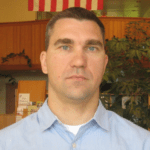 2013, Estonia, WFI Alumni
2013, Estonia, WFI Alumniaigar.kallas@rmk.ee
Aigar Kallas finished his 6 month Fellowship in November 2013. Aigar is the Managing Director and Chairman of the Management Board of the Estonian State Forest Management Center. His work at WFI was focused on developing techniques for assessing benchmarks in forest management practices at government agenices in the US. His goals was to develop a comprehensive methodology for perfomance assessment of public forestry organziations worldwide.
Ana Kanoppa | Brazil
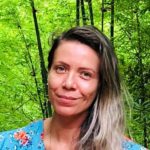 2019, Brazil, WFI Alumni
2019, Brazil, WFI AlumniAna Kanoppa is an expert in economic and forest policy with an MBA in Environmental Management and a Master of Science in Regional Development and Environment. She has been working since 2008 as a consultant in the Brazilian Amazon rainforest and has executed and elaborated local and regional projects in incentives for ecosystem services, costs and viability for sustainable supply chains, sustainability, and climate change. At the World Forest Institute, her goal is to study successful mitigation initiatives for climate change, specifically in public policy, carbon markets, and innovative financial mechanisms for conservation. Her research aims to investigate the main differences between regulated and voluntary carbon markets in tropical forests and Pacific Northwest forests as well as their respective contributions to global climate control and compliance with international climate change agreements.
Kenji Kariya | Japan
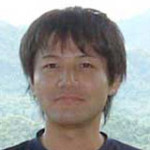 2000, Japan, WFI Alumni
2000, Japan, WFI Alumnikariya@sfc.co.jp
Kenji is a Researcher for Sumitomo Forestry Co., Ltd. in their Research Institute. He is an architect and is involved in a variety of research related to the aesthetic value of trees and housing design and construction, including ergonomics and Japanese life-styles. He is also currently a postgraduate student at Tokyo Institute of Technology in the Department of Architecture. During his Fellowship in 200-2001 Kenji researched wood usage for the interior design of houses in the Pacific Northwest as well as the benefits of wood as a building material.
Victor Kazembe Kawanga | Zambia
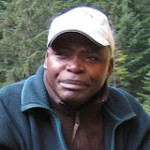 2008, Zambia, WFI Alumni
2008, Zambia, WFI Alumnikawangavik@yahoo.co.uk
During his Fellowship from 2008-2009, Victor completed an assessment of forest/forestry educational centers as models for learning and teaching public, institutional and private sectors of society. As a dedicated Natural Resources Interpretation and Development Expert, Victor works as a consultant in the area of developing and implementing conservation systems, strategies, interventions, processes and controls. His approach is to improve environmental scenarios and functions to achieve long lasting socio-economic, environmental, cultural, spiritual, religious and development relationships to ensure goal-surpassing fiscal performance. He works at the community, national and international level. Currently, he serves as Chair of the Global Environment Facility (GEF) Civil Society Organizations (CSO) Network which is a group of more than 500 non state actors. He also published a book: Zambian Plants & Trees: Botany, Nomenclature and Various Uses.
Krystina Kny | Australia
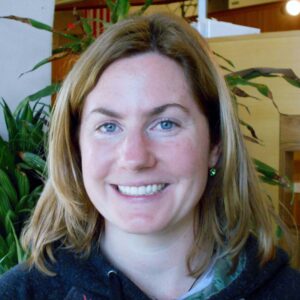 2014, Australia, WFI Alumni
2014, Australia, WFI Alumnikrystina.kny@gmail.com
Krystina Kny completed a six-month Fellowship in December 2014. She is from Melbourne, Australia and works for VicForests as their Manager of Operational Performance. Krystina is responsible for the management of VicForests’ Sustainable Forest Management System and maintaining compliance against relevant certification schemes and regulatory requirements. She has worked in both tree farming and native forestry in Australia and during her six month Fellowship Krystina completed a project on Social Acceptance of Working Native Forests, contrasting Victoria, Australia and the Pacific Northwest
Dr. Chao-Nien “Carol” Koh | Taiwan
 2015, Taiwan, WFI Alumni
2015, Taiwan, WFI Alumninien@tfri.gov.tw
Dr. Chao-Nien “Carol” Koh finished her WFI Fellowship Program in 2015. During her 6-month WFI Fellowship Program she focused on developing more advanced protection programs for the urban birds in Taiwan. After her program she resumed working for the Taiwan Forestry Research Institute (TFRI) where she has been for over two decades. At TFRI her current research focuses in ornithology in the urban setting. Some of her research has demonstrated that birds in the urban ecosystem have difficulties in raising their babies compared to those in the mountains. This finding has prompted her to develop educational materials for the public on how to help the birds and their habitats in the neighborhoods around the city of Taipei. During 2016 she created two outreach programs “bird-sleuth club” for primary school and “bird’s nest-box watch” in Taipei’s Botanical Garden. She also proposed the creation of a wildlife corridor in East rift valley where she investigated biodiversity in the last eight years.
Vijay Kolinjivadi | India
 2009, India, WFI Alumni
2009, India, WFI Alumnivkolinjivadi84@hotmail.com
Vijay spent his 6-month Fellowship studying the business demand for watershed service markets in Oregon. He interviewed buyers of watershed services in both the regulated and voluntary markets and ascertained motives for purchase into these services and the general perceptions of the buyers during this process. Vijay has spent several years studying payments for ecosystem services and will continue to work in this field in upcoming projects.
Namgon Kwag | South Korea
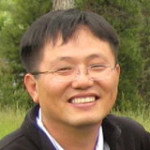 2007, South Korea, WFI Alumni
2007, South Korea, WFI Alumningkwag@eagon.com
Namgon works for Eagon Ltd., a luxury Korean building products supplier and builder. He has worked for Eagon for 12 years, beginning in the flooring factory and he is now the Team Manger of the Management Support Team, and is responsible for accounting, financing, labor affairs and strategic planning. During his Fellowship in 2008 he searched for products to introduce to the Korean building market, including wood and non-wood products.
Samantha Kwan | Malaysia
 2016, Malaysia, WFI Alumni
2016, Malaysia, WFI Alumnisamanthakwan1711@gmail.com
Samantha completed her Fellowship in 2016. Her aim is to improve urban forest park services in Salawak, Malaysia. While at WFI, Samantha learned about urban forest management and habitat restoration practices in the Pacific Northwest. Samantha returned to work for the Sarawak Forestry Corporation at Piasau Nature Reserves (PNR) managing an urban forest in the city of Miri. She has been increasing public involvement in PNR and presenting on PNR’s successes at conferences. The connections that she made during her fellowship followed her to Malaysia. She organized a public seminar on urban forestry with guest speaker Dr. Cecil Konijnendijk, a renowned professor from the University of British Columbia. She collaborated with Brian French, a well-known Portland arborist, on an inset cavity nesting project for the Oriental Pied Hornbill in PNR. In 2018, she will be setting up a nature classroom (inspired by attending the International Educators Institute at WFI) for urban areas in PNR. And recently, she was accepted as an active member for the IUCN Hornbill Specialist Group.
Kim Kyoung-Jin | South Korea
Phil Lacey | New Zealand
 2003, New Zealand, WFI Alumni
2003, New Zealand, WFI AlumniPhil.Lacy@pfolsen.com
Phil completed his Ph.D in 2008. He is currently for PF Olsen as a Technical Services Manager, supervising a team of technical experts covering spatial information, resource modeling, forestry systems, fire, silviculture and research. PF Olsen has been operating for over 35 years in New Zealand and recently decided to expand their operations into Australia. They manage forests (plantation or native) for investors, with no forest ownership themselves. During his one-year Fellowship in 2003-2004, Phil sought to understand the biological, economic and environmental factors facing industrial forest managers in the Pacific Northwest (PNW), and to examine the decision support systems that various forest managers adopt.
Sarita Lama | Nepal
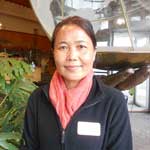 2015, Nepal, WFI Alumni
2015, Nepal, WFI Alumnisshyangwa@hotmail.com
Ms. Sarita Lama finished her 6-month WFI Fellowship Program in 2015. During her program at WFI she focused on expanding her knowledge on sustainable forest practices to bring lessons back home for Chure hills management in Nepal. She came to WFI with over ten years working experience in the field of forestry in the various mid-hill districts of Nepal through various national and international non-governmental organizations. Her involvement was mostly in implementing and managing community forestry program mainly focused on benefiting the poor, women and marginalized households. Sarita aims to provide service for social empowerment and to build ecosystem resilience of the disastrous and precarious condition of southern and outer hills of Nepal, known as ‘Chure’.
Seol Woong Lee | South Korea
 2006, South Korea, WFI Alumni
2006, South Korea, WFI Alumniswlee@eagon.com
Seol Woong Lee, an architect by training, works in the marketing division of EAGON Inc. His primary responsibility is developing new wood-based products and planning new business opportunities. During his six-month Fellowship in 2006, Lee explored wooden housing facilities for seniors, including retirement and assisted living communities. By 2026, Korean society is expected to become super-aged society in which over 20% of the population will be above 65 years of age. Therefore, the development of facilities and dedicated housing for seniors has become a key issue in Korea.
Weidong Li | China
Mr. Weidong Li was a Senior Researcher at the Chinese Academy of Forestry and a former editor-in-chief of the Chinese journal, World Forestry Development. He was WFI’s first Fellow from China, in 1994-1995. Mr. Li has since passed away.
Xuejiao Li | China
 2018, China, WFI Alumni
2018, China, WFI Alumnilixuejiaoli@163.com
Li Xuejiao is a program officer at the Chinese Academy of Forestry based in Beijing, China. She obtained her Master’s degree in ecology at Beijing Normal University and is now working on forestry international cooperation. During her fellowship in 2018, she did an Appraisal of International Collaboration in U.S. Forest Science.
Xiaoqiong Liang | China
 2013, China, WFI Alumni
2013, China, WFI Alumnixq0520@hotmail.com
Xiaoqiong Liang completed her six-month Fellowship in October, 2013. As a research assistant for the Chinese Academy of Forestry in Beijing, Xiaoqiong worked on policy development of the new forest certification scheme being implemented in China, the CFCC, or Chinese Forest Certification. With CFCC applying for endorsement by the larger certification body PEFC, Xiaoqong came to WFI to study how the implementation of CFCC would affect US trade of forest products with China. Specifically, she looked at FSC-certified companies in the US and how much they export to China and assessed their level of knowledge regarding China’s new forest certifcation and what it might mean for them and their business.
Jiunn-Cheng “David” Lin | Taiwan
 2004, Taiwan, WFI Alumni
2004, Taiwan, WFI Alumniljc@tfri.gov.tw
David manages 1000 hectares of forestland in the Taimali research center, under the Taiwan Forestry Research Institute. The center is located in southeast Taiwan. It is one of six research centers which belongs to TFRI. During his Fellowship in 2005, David explored avenues other than logging to generate income from forestland, such as carbon sequestration projects and ecosystem services.
Dr. Yu-jen Lin | Taiwan
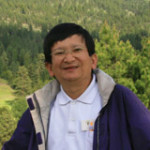 2009, Taiwan, WFI Alumni
2009, Taiwan, WFI Alumniyujen@tfri.gov.tw
Dr. Yu-jen Lin has worked as a scientific researcher at the Taiwan Forestry Research Institute since 1998. His research projects involve carbon sequestration estimation of the economic trees and bamboos in Taiwan and charcoal production utilizing bamboo and forest biomass residues. During his ten-month fellowship at WFI, Yu-jen did extensive research on the technologies and processes of woody biomass utilization in the West. He focused on production mechanisms that he could apply towards Taiwan’s forest resources, specifically the potential for bamboo to be used for the production of wood pellets. Yu-jen’s fellowship was sponsored by the Harry Merlo Foundation and National Science Council of Taiwan, and supported by the Taiwan Forestry Research Institute.
Chiung-ping “Bonnie” Liu | Taiwan
 2002, Taiwan, WFI Alumni
2002, Taiwan, WFI Alumnicpliu@nchu.edu.tw
Bonnie, formerly from the Taiwan Forestry Research Institute (TFRI) in Taipei City, is now an Associate Professor at the Department of Forestry, National Chung Hsing University, In Taichung, Taiwan. During her Fellowship in 2003 Bonnie researched watershed management and associated research techniques.
Dr. Qingxin Liu | China
 2015, China, WFI Alumni
2015, China, WFI Alumniliuqingxin666@163.com
Dr. Qingxin Liu is from Beijing, China. Since 2012 he has been working in the Division of Science and Technology Management at the Chinese Academy of Forestry (CAF). With science and technology systems reform in China, he is interested in learning more about effective management of forest scientific research projects in the Pacific Northwest. He will study the development of public forestry project management during his time here at WFI, which will be from June through November, 2015. He aims to carry out a comparative study on the research management systems in US and China and to bring knowledge of good experiences and practices from the US to China.
Chris Lopez Paniagua | Mexico
 2006, Mexico, WFI Alumni
2006, Mexico, WFI Alumni
cristopher_lp@hotmail.com
Cristopher completed a one-year Fellowship in 2007, sponsored through a joint funding project with the USDA Forest Service’s International Programs and the Chiles Foundation. Cristopher worked with several groups involved in the management of the Monarch Butterfly Reserve – including WWF-MEXICO the Mexican Fund to the Nature Conservation, USAID, and CONANP – to develop his WFI research project. He investigated ecotourism activities in the Reserve and surveyed visitors to develop a market study of tourist demand. He also gave ecotourism guide trainings to local ejido members.
I-Chun Lu | Taiwan
 2010, Taiwan, WFI Alumni
2010, Taiwan, WFI Alumni
ichun@tfri.gov.tw
I-Chun Lu completed a five-month fellowship in 2010 researching methods and technologies used in environmental education in the Pacific Northwest. She returned home in October and resumed her work for the Taiwan Forest Research Institute. I-Chun is an assistant researcher in the Botanical Division of TFRI. She was previously stationed in Taipei, but will resumes her duties at a new work station in Yi-lan county.
Meijuan Luo | China
 2008, China, WFI Alumni
2008, China, WFI Alumnimjuanluo@gmail.com
Meijuan Luo works for Fujian Academy of Forestry in Fuzhou City, China as a researcher engaging in forest silviculture and ecology. She was at the WFI for a 6-month Fellowship sponsored by World Forest Institute & Fujian Fumin Foundation. She has a Master’s degree in forestry from Fujian Agriculture and Forest University. While working full-time at Fujian Academy of Forestry, Meijuan is concurrently enrolled in a PhD program at the Chinese Academy of Forestry. Her research project at WFI was on the topic of forest ecological service compensation. She studied the mechanisms of compensation of forest ecosystem services and the ways to motivate people to protect the environment in the Pacific Northwest . The objective of this research was to help Fujian Province establish its own forest ecological compensation mechanisms.
Dr. Huancheng Ma | China
 2011, China, WFI Alumni
2011, China, WFI Alumnimhckm@foxmail.com
Dr. Ma is a professor of Silviculture at SW Forestry University in Kunming, China. He took a short four-month sabbatical to come to WFI and study ecosystem management in the US. Ma was at WFI from September through December, 2011. Ma returned to his university with some new ideas about habitat conservation and some practical tools for implementation.
Zengwang Ma | China
 2006, China, WFI Alumni
2006, China, WFI Alumnimazengwang@163.com
Zengwang Ma is a researcher at the Hebei Academy of Forestry Science. In 2006-2007 the Hebei Provincial government sponsored Ma for a 12-month Fellowship. Hebei province, which surrounds Beijing, has been overlogged, resulting in desertification, flooding and landslides. Consequently the government has imposed logging restrictions, and they are now faced with the task of finding alternative revenue sources through sustainable forest development. In his work, Zengwang studies silviculture and reforestation.
Will Maiden | United Kingdom
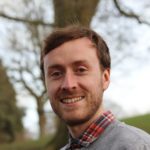 2019, United Kingdom, WFI Alumni
2019, United Kingdom, WFI AlumniWill Maiden studied at Harper Adams University in England, graduating with a degree in Countryside Management. Much of William’s experience comes from his time as a local authority Park Warden at the 260-acre Lydiard Park, where he was responsible for implementing a forestry management plan dealing with tree pest and disease outbreaks in a busy public park. Since then, Will has continued to work in local authority, most recently with the Royal Wootton Bassett parks department in the management of the town’s greenspaces. The increasing threats posed by tree pests and diseases and the impacts of climate change on forests are to be the focus of Will’s work at the World Forest Institute. He intends to look at the implications that pests, disease, and climate change pose to the forest products and non-timber industries and to identify areas of good practice which will be applicable to the tree pest and disease issues being faced in the U.K. Will has continued to build on his qualifications, most recently gaining a Diploma in Arboriculture and continues to study part-time for a Master in Science in Environmental Management, which he intends to complete on his return to the U.K.
Dr. Ali Malek | Iran
 2012, Iran, WFI Alumni
2012, Iran, WFI Alumniali110forester@yahoo.com
Dr. Ali Malek completed an 18-month Fellowship program in July 2103. Ali is a professor of forestry in Tehran. While at WFI he investigated metrics for monitoring urban forest health. In comparisons of two different neighborhoods in Portland, Ali determined that basal area per capita was the most important index in studying the relationship between street trees and socio-economic issues in different neighborhoods.
Stuty Maskey | Nepal
 2015, Nepal, WFI Alumni
2015, Nepal, WFI Alumnistutymaskey@gmail.com
Ms. Stuty Maskey finished her 5-month WFI Fellowship Program in 2015. Her academic background is in Economics and Public Policy. During her fellowship, Stuty conducted research in forest-collaboratives in the Pacific North-West (PNW). She was interested to learn about the opportunities and challenges faced by PNW’s forest collaboratives in order to understand policy and institutional needs to leverage collaborative governance model in Nepal (Final presentation: Collaborative Governance). After completing her fellowship, Stuty pursued her research interest by enrolling in a PhD program in the School of Public Policy at Oregon State University. Currently, Stuty is collecting data in Nepal for her PhD thesis. Her topic is ‘Stakeholder perspectives on collaboration for a national forestry program’. For this she is conducting an in-depth case study of a large forestry program in Nepal that aimed to improve forestry governance through collaborative policy and decision-making processes. The program however, terminated early. Stuty is investigating the reasons for this termination. Stuty’s broad interest lies in environmental governance. Currently her focus is in collaborative approaches to environmental policy-making and whether it can foster development in low-income countries.
Milan Mataruga | Bosnia-Herzegovina
 2008, Bosnia-Herzegovina, WFI Alumni
2008, Bosnia-Herzegovina, WFI Alumnimilan.mataruga@unibl.org
Milan Mataruga completed a year-long fellowhip, ending in September 2009, where he studied and gained practical experience in forest genetic resources of the the Pacific Northwest. For many years he served as a Professor in the Faculty of Forestry, University of Banja Luka in Republic of Srpska, Bosnia and Herzegovina. More recently he was appointed a Vice Rector for science, research and development at University of Banja Luka. His previous research has centered around seedling growth and production, including work on seed orchards, physiological and genetic seed research, drought resistant seedlings, preservation of biodiversity, afforestation and reforestation.
Romain Matile | France
 2019, France, WFI Alumni
2019, France, WFI AlumniRomain Matile is a senior forest technician working for a New Caledonia-based forestry company in the South Pacific. His previous roles include working as a forestry expert at the Civil Security and Risk management Direction for the New Caledonia government, sworn officer in charge of forest protection management for the French Ministry of Agriculture and Forests, field controller of the European Subsidies for Agriculture and Forestry Development, biology and ecology teacher, and lumberjack. In May 2018, Romain participated in the controlled-burn training-exchange program (COTREX) in Bend, Oregon. He holds a Master of Science in Population Biology and Vegetal Ecology from the University of Grenoble, France, a Higher-Technician Diploma in Forestry, a prescribed-burn boss formation, and a French firefighter training certification. Romain’s project with the World Forest Institute is to study the different impacts of controlled burns versus wildfire on the growth of timber wood. In addition, by studying forest protection policies implemented in Oregon, Romain wants to promote the development of controlled burning practices in France and New Caledonia that will contribute to more cost-effective efforts to protect natural areas.
Thammarat Mettanurak | Thailand
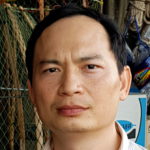 2018, Thailand, WFI Alumni
2018, Thailand, WFI Alumni
thammarat_m@hotmail.com
Thammarat Mettanurak has been managing his family business, a retail store for construction materials, in Thailand for over a decade. Because lumber is the most profitable product in his family-run business, Thammarat chose to obtain a Master’s degree in Wood Science and Forest Products at Virginia Tech. Over the last ten years, the demand for Thai dimensional lumber has declined due to its relatively high price as well as decreased availability from Thailand’s neighboring countries. This trend has negatively impacted his company’s bottom line. During his 2018 Fellowship, Thammarat conducted research on Potential Applications of Softwood Lumber in Thai Home Construction.
Tendayi Mhlanga | Zimbabwe
 2012, Zimbabwe, WFI Alumni
2012, Zimbabwe, WFI Alumnitagmhlanga@yahoo.com
Networking from the Business & Computer institute (BCI) – London, United Kingdom. He is currently pursuing a BBA Marketing degree with the Institute of Marketing Management (IMM) – South Africa. Tendayi is employed as General Manager overseeing business development for Cheermart Timbers – a private company in Zimbabwe. While at WFI, Tendayi conducted an in-depth study of the business development models and practices of forest products industries in the Pacific Northwest. In particular, Tendayi studied sawmill business solutions in order to make better business & management decisions back home.
Lee Miezis | Australia
 2001, Australia, WFI Alumni
2001, Australia, WFI Alumnilee.miezis@dse.vic.gov.au
Lee is the North Coast Marketing Improvement Manager for State Forests of New South Wales. Lee works with internal and external parties to improve the delivery of timber products to the market and to be more responsive to markets demands and to foster relationships with partners in the distribution chain for hardwood products. During his Fellowship in 2001-2002 Lee researched North American timber markets and authored the WFI Special Report – North American Timber Markets: Production, Consumption, Preferences and Opportunities for Australian Native Timber.
Robert Mijol | Malaysia
 2015, Malaysia, WFI Alumni
2015, Malaysia, WFI Alumni
jinchu_21@yahoo.com
Mr. Robert Martin Mijol from Malaysia finished his 6-month WFI Fellowship Program in 2015. During his time at WFI he focused on learning about Payments for Ecosystem Services to use the knowledge to share and expand the idea into government policy and legislation back home. After his WFI Fellowship program he resumed working for the Sabah Forestry Department, where he got promoted to be the Manager for Ulu Segama-Malua Sustainable Forest Management Project. His new responsibilities include coordinating stakeholders, evaluating forest re-certification, leading field work (mostly on forest rehabilitation for orang-utan), and protecting forests from illegal logging and Ag-encroachment and wildlife poachers. He spends most of his time out of the grid caring for the beautiful tropical rainforest of Sabah.
Nerijus Miskinis | Lithuania
 2006, Lithuania, WFI Alumni
2006, Lithuania, WFI Alumni
miskinis@lhd6.navy.mil
Nerijus Miskinis is a Ph.D. forestry student at the Lithuanian University of Agriculture. Nerijus was WFI’s first Lithuanian and first non-Russian eastern European Fellow in 2007. His 12-month Fellowship was being sponsored by the Shelk Foundation. Nerijus explored the forestry business in the Pacific Northwest in order to take lessons learned back to apply in Lithuania.
Aline Moreira | Brazil
 2009, Brazil, WFI Alumni
2009, Brazil, WFI Alumnineguinhalinda@yahoo.com.br
Aline Moreira’s professional background is in environmental resource management and social welfare. Aline finished her year-long WFI Fellowship at the end of May 2010 with the successful completion of new curriculum for the Project Learning Tree book ‘Global Connections: Forest of the World‘. Her project was sponsored by the American Forest Foundation. Aline hopes to continue her work in environmental education and continue to bridge the gaps between the social and educational needs of communities.
Jamie Morton | Australia
 2001, Australia, WFI Alumni
2001, Australia, WFI Alumnijamie.morton@cma.nsw.gov.au
Jamie is currently the Catchment Coordinator for the Northern Rivers Catchment Management Authority. He completed a Fellowship in 2001, sponsored by the Gottstein Trust and Forest and Wood Products Australia.
Ana de Miguel Munoz | Spain
 2016, Spain, WFI Alumni
2016, Spain, WFI Alumni
jamie.morton@cma.nsw.gov.au
Ana is a former WFI International Fellow from Spain who completed her Fellowship in 2016. During her time at WFI Ana conducted research on Short Rotation Forestry. She is currently finishing her PhD. in forestry at the Waterford Institute of Technology in Ireland. In September 2017, she started working for Coillte, the Irish state commercial company responsible for managing forests. Last year, she also volunteered for Calmast, an organization that brings science and engineering to the general public and particularly to children.
Rita Mustikasari | Indonesia
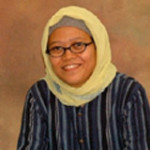 1994, Indonesia, WFI Alumni
1994, Indonesia, WFI Alumniritamustikasari@telapak.org
After finishing her Fellowship in 1994-1995, Rita joined CIFOR as IUFRO Liaison Officer in 1995-1999 and worked as a Research Assistant on the Non-Timber Forest Products issue from 2000 to 2002. She holds a Master’s Degree in Rural Sociology from Bogor Agricultural University. She is currently a Coordinator for Integrated River Basin Management with TELAPAK, an advocacy NGO in Bogor, Indonesia.
Roger Naylor | United Kingdom
 2000, United Kingdom, WFI Alumni
2000, United Kingdom, WFI Alumniroger.naylor@fimltd.co.uk
During his Fellowship in 2000 to 2001 Roger was sponsored by Jaakko Poyry and examined global forests and their role in the sustainable satisfaction of human needs. Roger is currently the Portfolio Manager of the Evli Impact Forest Fund, which invests in premier unlisted forestry funds in its target regions – US, South America, Australia and New Zealand. The fund aims to deliver a positive carbon impact to mitigate climate change alongside an attractive return. Evli is an asset manager headquartered in Helsinki, Finland. Prior to joining Evli, Roger was Director of Investment Forestry at IWC, an international timberland investment advisor with commitments of USD 3.5 billion on behalf of institutional investors. Roger holds an MSc in Forest Economics.
Patrice Ngalla | Cameroon
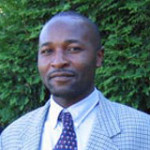 2005, Cameroon, WFI Alumni
2005, Cameroon, WFI Alumnipatricengalla2005@yahoo.co.uk
Patrice Taah Ngalla is currently working for the World Wildlife Fund’s Central Africa Regional Programme Office as a GIS/Remote Sensing Specialist. Patrice provides advanced customized GIS and remote sensing work to support conservation and the sustainable use of natural resources in southeast Cameroon. During his Fellowship in 2005, Patrice explored different options and procedures in GIS & remote sensing that can be integrated with forest inventories in order to provide decision support information for sustainable forest use and management.
Mikkel Brings Nielsen | Denmark
 2004, Denmark, WFI Alumni
2004, Denmark, WFI AlumniMikkel.Brings@btgpactual.com
During his Fellowship in 2004, Mikkel researched the risks and return issues related to forestland investment in the Pacific Northwest. He is the author of WFI Special Report “Managing Risk in the Evolving World of Timberland Investments.” He then went to work for Danish timberland investment advisor the International Woodland Company in Copenhagen, Denmark. In 2015, he joined BTG Pactual’s Timberland Investment Group, a timberland investment organization based in the US.
Richard O’Hanlon | Ireland
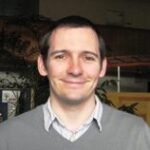 2012, Ireland, WFI Alumni
2012, Ireland, WFI Alumniwfi@rohanlon.org
Richard O’Hanlon is a forest ecologist and mycologist from Ireland. He completed a six month Fellowship in July, 2012. His research focused on the difference in macrofungal communities between the native Sitka spruce forests here in the Pacific Northwest and the non-native Sitka spruce forests of Ireland and Britain. Richard’s Fellowship was sponsored in part by the Council for Forest Research and Development (COFORD).
Claudio Ortolan | Brazil
 1995, Brazil, WFI Alumni
1995, Brazil, WFI Alumni
claudio.ortolan@hotmail.com
In 1996, Claudio completed a one-year Fellowship as the Brazilian representative at WFI. Claudio graduated with a bachelor’s degree in Chemical Engineering in Curitiba, Parana in 1981. He received his M.B.A. in Economic Engineering in 1990. Claudio has worked in forest product companies in operations and projects for panels, sawmill, pulp and paper. He has worked for Global Forest Partners in their South American operations, for consulting firm Pöyry, and in 2016 returned to Klabin, the largest paper company in Brazil, working in Remote Forest Monitoring (satellite images and drones), Harvest, and Forest Products Market.
Karishmaa Pai | India
 2016, India, WFI Alumni
2016, India, WFI Alumnikarishmaapai@gmail.com
Karishmaa is from India and joined WFI as an International Fellow in 2016. Her Fellowship project was on innovative urban forestry initiatives for corporate funding. In 2017, Karishmaa joined International Flavors and Fragrances,Inc. as their strategic planner for fragrance development in Singapore. She works as part of the Fabric Team and is currently on a six-month project assignment in the Netherlands working on applying environmentally conscious principles to laundry detergents and softeners.
Kyungtae Park | South Korea
 2006, South Korea, WFI Alumni
2006, South Korea, WFI Alumniktpark@eagon.com
During his Fellowship in 2006, Kyungtae explored green building and wood markets developments in the US. He was then posted to Chile, where he managed Eagon Lautaro S.A. in Lautaro, as a commercial manager. Eagon Lautaro manufactures Radiata Pine plywood and veneer and is involved in forestation and harvest. Their headquarters, Eagon Industrial is one of the major integrated specialty wood product manufacturers and importers in Korea. In 2016 Kyungtae was posted to Seattle, WA, which primarily sells the plywood produced at their Chilean mill to US markets. In March 2017, he went back to work in Eagon Lautaro, Chile as a commercial manager.
Tuan Manh Phan | Vietnam
 2018, Vietnam, WFI Alumni
2018, Vietnam, WFI Alumni
tuanconsultantvietnam@gmail.com
Tuan Manh Phan is a legal and institutional policy consultant from Vietnam. He has an MBA (2013), law (1998) and mechanical engineering (1983) degrees, and professional certificates in climate change and policy advisory. In recent years, Tuan has been deeply involved in designing policy frameworks and legislative tools in environmental protection, climate change adaptation, and biodiversity conservation, including the promotion of payments for forest ecosystem services (PFES). In 2018 during his fellowship program Tuan’s project was an Analysis of Carbon Policies and Payment for Forest Ecosystem Services in the U.S. (video).
Enkeleda Pjetri | Albania
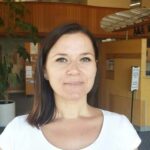 2015, Albania, WFI Alumni
2015, Albania, WFI Alumniepjetri80@gmail.com
Enkeleda Pjetri finished her 4-month WFI Fellowship Program in 2015. During her time at WFI as a Community Solutions Program fellow, she focused on learning about forestry and environment community related issues, sustainable development of natural resources. (Country Presentation: Albania). Since December 2016, Enkeleda has been working on an international construction project, where she supervises the construction company’s commitment to respecting the rights of local communities affected by the construction. She finds it very interesting to be in touch with local peoples and to be part of such a large international work environment. Enkeleda views her new job as an opportunity to learn from a new sector as well as to widen her professional network.
Matthew Pope | Australia
 2007, Australia, WFI Alumni
2007, Australia, WFI Alumnimatthewp@sf.nsw.gov.au
Matthew is an infrastructure forester at Forests New South Wales with responsibilities for road construction and maintenance, and has worked in other operational roles including fire, recreation, weed control and fertilizing. During his Fellowship from 2007-2008 Matthew investigated the use of integrated field data management systems. Matt was sponsored by the Gottstein Trust and the Forest and Wood Products Research and Development Corporation.
Jagdish Poudel | Nepal
 2009, Nepal, WFI Alumni
2009, Nepal, WFI Alumnipoudelj@michigan.gov
Mr. Jagdish Poudel finished his one year WFI Fellowship in March 2011. He surveyed small woodland/forestland owners about their perceptions and knowledge of carbon markets and carbon credit systems. He spent his year here learning about mechanisms of carbon trading and frameworks for successful models. He returned to Nepal to work on on a REDD+ pilot project for a year before returning to the state to work on his PhD at Auburn University in Alabama. Currently he works as Forest Economist at Michigan Department of Natural Resources and as an Adjunct Assistant Professor at Department of Forestry, Michigan State University. His work involves estimating economic contribution of forest products industries and forest-based recreation activities in Michigan.
Eduardo Quartim Barbosa | Brazil
 1997, Brazil, WFI Alumni
1997, Brazil, WFI Alumnipoudelj@michigan.gov
Eduardo is a Forest Engineer based in Brazil. His fellowship at WFI in 1997 – 1998 was focused on international wood markets, and he organized the Brazil Moulding and Millwork Conference at the World Forestry Center in 1997. Eduardo has skills in environmental issues and climate change. He has worked on environmental conservation, and forest production with small and medium land owners. Most recently, he is involved with Environmental Licensing, Permaculture, Agroforestry and Low Carbon Economy.
Anne Rahikainnen | Finland
 1993, Finland, WFI Alumni
1993, Finland, WFI Alumniarahikainen@greenfaith.org
Anne was one of WFI’s earliest Fellows in 1993. After her fellowship she worked many years as a consultant for the Poyry Group, an engineering and consulting firm serving customers in the energy and environment sectors, advising energy companies on renewable energy investments across North America. She also held a sales and outreach role at Green Mountain Energy, one of the largest wind energy project developers and energy marketers in the USA, educating consumers about clean choices and home energy saving strategies. Anne is a BPI Certified Energy Auditor and Business Energy Professional. She studied Business at Cornell University and has a degree in Environmental Science from the University of Helsinki, Finland.
Jaakko Rantanen | Finland
 1997, Finland, WFI Alumni
1997, Finland, WFI Alumni
jaakko.rantanen@indufor.fi
Mr. Rantanen is a consultant at Indufor Oy, based in Finland. He has extensive experience in international wood products industry with a strong background in forestry. He has worked in demanding sales roles in wood products, plywood and softwood lumber industry throughout his career and has wide international knowledge of primary and secondary wood products in Europe and Asia, especially in Japanese markets when he was an export sales manager at UPM-Kymmene. Most recently he has been involved in the wood procurement operations. He is fluent in Finnish and English. Jaakko Rantanen holds a master’s degree in forest economics (M.Sc. For.) from the University of Helsinki.
Sari Sahlberg | Finland
ari.Sahlberg@sfs.fi
Sari currently works at the Finnish Standards Association SFS as a technical advisor. Her main field is environmental management. Prior to SFS, Sari was a lead auditor of sustainable forest management and chain-of-custody of forest products at Inspecta. Sari was one of WFI’s first Fellows, in 1992-1993.
Dr. Gabriel Salako | Nigeria
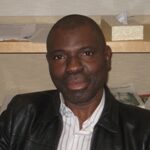 2011, Nigeria, WFI Alumni
2011, Nigeria, WFI Alumnigabsalako@yahoo.co.uk
Dr. Gabriel Salako holds a PhD in Environmental Resources Management specialization in Remote Sensing and GIS from Modibbo Adama University of Technology, Yola, Nigeria. He had earlier did his PhD internship at the department of forest ecosystems and society in Oregon State University, United States where he worked mostly on ecological modeling, forest resources and ecosystem monitoring using multispectral and air borne remote sensing techniques. Gabriel finished a 7-month Fellowship in November 2011, where he conducted a feasibility study on the use of Pacific Northwest conifer species in the development of softwood plantations in NE Nigeria. The Mambilla Plateau of NE Nigeria has climatic conditions similar to that of the Pacific Northwest and Gabriel identified several species that have climatic and ecological requirements as that found on the plateau. Gabriel also obtained a Post graduate professional certificate in GIS from World Forest Institute, USA where he also won an international fellowship award in 2011. Dr. SALAKO has since being a visiting Research Associate at Oregon State University (OSU). He is a BID mentor for Africa for Global Biodiversity Information Facility (GBIF) an EU funded project. His research interest include: Forest Ecosystem Monitoring and Management, Application of RS/GIS In Ecosystems Classification and Mapping, Ecological modeling, Disaster Mapping and Management, Environmental Resources Assessment. His research activities have taken him to several countries like United States, Germany, Chad, Portugal and France. He is currently Head, Environmental Management and Toxicology Kwara State University Malete Nigeria.
Miguel Sanchez Fajardo | Bolivia
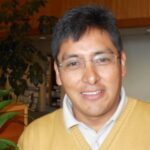 2015, Bolivia, WFI Alumni
2015, Bolivia, WFI Alumni
angelmasf@hotmail.com
Mr. Miguel Sanchez Fajardo from Bolivia finished his 6-month WFI Fellowship Program in 2015. During his program he conducted research in forest nurseries (Final Presentation: Characterization of Forest Nurseries). After his program Miguel worked at Fondo Nacional de Desarrollo Forestal (FONABOSQUE), where he planned seedling production on the national level. In May 2017, Miguel invited Diane Haase and Kas Dumroese, nursery specialists from the U.S. Forest Service, to Bolivia to provide technical assistance pertaining to nursery production and out-planting of seedlings. Over 200 participants were trained during this two-week workshop.
Jon Bingen Sande | Norway
 2000, Norway, WFI Alumni
2000, Norway, WFI Alumni
jon.b.sande@bi.no
Jon Bingen Sande completed a one-year Fellowship in 2000-2001 and researched the globalization of the forest industry. He holds a Master of Forestry degree from the Norwegian University of Life Sciences, and a Ph.D. in Marketing Strategy from the same university. He is currently an associate professor in marketing at the Department of Marketing, at the Norwegian School of Management, BI. His research centers around marketing and distribution channels, governance and inter-organizational relationships. Faculty Profile
Tim Sanders | Australia
 2011, Australia, WFI Alumni
2011, Australia, WFI Alumni
tim.sanders@vicforests.com.au
Tim Sanders from Australia finished his 6 month Fellowship in October. Tim came here to study what forest management agencies were doing in preparation or in response to climate change. He completed a very thorough synthesis of the adaptive management strategies and schools of thought in the Pacific Northwest, complete with site visits and interviews of public and private agencies. A copy of his report and final presentation can be found elsewhere on our website. Tim returned home to resume his work with VicForests in Melbourne where he hopes to implement some of the findings from his study here into their future management plans.
Diana Sari Susanto | Indonesia
 1995, Indonesia, WFI Alumni
1995, Indonesia, WFI Alumni
Tony Scherl | Australia
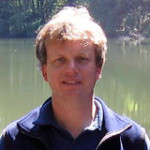 2004, Australia, WFI Alumni
2004, Australia, WFI Alumniyurgi5@hotmail.com
Tony Scherl is a Fire Officer with Forests New South Wales Fire Management unit. Tony has worked for the Forests NSW for over 10 years, in a range of positions from forest field worker to forester. During his Fellowship from 2004-2005, Tony examined measures the US has taken regarding the problems of re-introducing prescribed fire and active fuel management into the landscape, as well as ways Australian forests can benefit from the US experience.
Andreas Schuck | Germany
 1987, Germany, WFI Alumni
1987, Germany, WFI Alumniandreas.schuck@efi.int
During his Fellowship in 1996-1997, Andreas conducted a Parr Lumber study, tracked trends in the world panel market, and organized a ‘Global Forest Monitoring Workshop’ for IUFRO. The IUFRO workshop and the following work led to the establishment of the IUFRO Global Forest Information Service.
Vera Serrao | Portugal
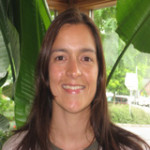 2010, Portugal, WFI Alumni
2010, Portugal, WFI Alumniserraovera@gmail.com
Vera completed her 6-month Fellowship program in December 2010. She came to WFI to study post-fire forest management and to learn how forest management agencies in the U.S. respond to fires. Vera was engaged in learning about the practical response to fires in an effort to develop risk assessment and response models for dealing with forest fires in Portugal.
Hwa-Guang Shang | Taiwan
 2012, Taiwan, WFI Alumni
2012, Taiwan, WFI Alumnihgshang@tfri.gov.tw
Hwa-guang is a government officer serving at Taiwan Forestry Research Institute (TFRI) as an assistant researcher. He has a Bachelor’s and Master’s degree in forestry from National Taiwan University, both specializing in forest products technology. His work at TFRI includes forestry extension education, publications, technology consultation services, etc. Hwa-guang spent his 6-month Fellowship in 2012 studying extension education platforms that are used by various agencies and organizations to educate about forest ecosystem degradation and global climate change. He made comparisons with platforms in Taiwan and returned to his position at TFRI with recommendations on how to improve Taiwan’s environmental education outreach.
Khurram Sheikh | Canada
 2011, Canada, WFI Alumni
2011, Canada, WFI Alumnishahidd12@hotmail.com
Canadian Fellow Khurram Sheikh finished his program in late August 2011. Here for six months, Khurram focused his research on learning about the practical management of invasive species control in the urban environment. Interviews with city, county and state land managers along with site visits all helped inform Khurram of the latest issues and management techniques for the top invaders of our region. He returned to Toronto in hopes of putting his new found knowledge to work back home.
Gui Shen | China
 2009, China, WFI Alumni
2009, China, WFI AlumniMr Shen Gui is a professor and the deputy secretary-general of the Chinese Society of Forestry. His background is in wood processing, and he has wroked for the China National forestry Product industry Association and the China Furniture Association. In recent years, he has focused more on education. Mr. Shen completed a six-month fellowship in 2009 where he continued in research into public education of forestry and forestry issues.
Maki Shiina | Japan
 1995, Japan, WFI Alumni
1995, Japan, WFI Alumnimshiina2002@yahoo.co.jp
Maki graduated from Portland State University with a Master’s degree in communication in 2004. During her Fellowship in 1995-1996, Maki was sponsored by Nichimen and Sumitomo Forestry.
Sandra Silva Perez | Chile
 2000, Chile, WFI Alumni
2000, Chile, WFI Alumni
ssilva@australis-sa.com
Sandra is currently Marketing & Business development Deputy Manager at Australis Seafoods based in Puerto Varas, Chile. Prior to this she was a regional director at the Chilean Exports Promotion Agency (PROCHILE). During her Fellowship in 2001, Sandra conducted market studies on with forest issues and compiled and managed forest products statistics information used to create a data mart prototype.
Jussi Silventoinen | Finland
 1995, Finland, WFI Alumni
1995, Finland, WFI Alumnijussi.silventoinen@indufor.fi
Jussi was a fellow at WFI in 1995-96. He served 10 years at The Beck Group as a Senior Consultant in Portland. In 2007, he returned to Finland to take up a new position at Indufor Oy, a forest consulting company. He is now Head of Management Consulting and Senior Forest Industry Consultant.
Roland Simpson | Australia
 1998, Australia, WFI Alumni
1998, Australia, WFI AlumniWFI Board members and staff were saddened to hear of the recent death of Roland Simpson on October 22, 2004. Roland was a Fellow in 1998 and more recently worked as a forester with Forests of New South Wales in their Investment Services Division. Roland died as a result of injuries sustained in a BASE jumping mishap in China. Roland’s ever-optimistic attitude and broad smile will surely be missed both here in Portland as well as in Australia.
Alexander Sizykh | Russia
Abiodun Solanke | Nigeria
 2016, Nigeria, WFI Alumni
2016, Nigeria, WFI Alumni
abbeylight@gmail.com
Abi is from Nigeria and came to WFI as an International Fellow in 2016. His research objectives while at WFI were to gain first-hand experience in best practices in cultivating, harvesting, and post – harvest processing of bamboo and engineered wood. For Abi, the immersion into the world of sustainability at the World Forest Institute remains a significant milestone. He returned home to start his collaborative practice – LITEHaus ARCHITECTURE + DEVELOPMENTS, an integrated firm of sustainable architecture and civil and environmental engineering. LiteHaus’ purpose is to bridge the gap between the theories and realities of living in the tropics by providing realistic, cost–effective, and sustainable solutions using local materials and appropriate technology. The firm constantly seeks opportunities to maximize the use of bamboo and adobe. Abi’s mission is to bring about transformative thinking and application of renewable materials to eradicate sub-standard housing for low and middle-income Nigerians and for Africans at large. He believes the highest form of efficiency is to make the best use of local materials with global perspectives in mind to solve affordable housing problems. In 2017, his affordable housing scheme using recycled material was selected as one of the top 50 innovative entrepreneurial ideas by the British Council in Nigeria. Abi is an active advocate for the improvement of vulnerable, under-served, and disenfranchised communities.
Daisuke Tajima | Japan
 2009, Japan, WFI Alumni
2009, Japan, WFI AlumniMr Daisuke Tajima completed a short four-month fellowship program in the summer of 2010. Daisuke researched the business of small forestland ownership. His family owns forestland in Japan and he focused his research on learning about practices surrounding the livlihood and sustainability of family forestlands. He also focused on global trends affecting small-scale forestry. Daisuke completed his Fellowship prior to his last year of school at Keio University.
Deepak Tamang | Nepal
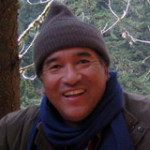 2007, Nepal, WFI Alumni
2007, Nepal, WFI Alumnideepak_tamang@hotmail.com
Deepak is a senior development specialist with nearly 3 decades of experience working in rural development and environment, including extension, capacity building, planning and monitoring, in Nepal and other countries in South, Central and South-East Asia. He currently heads a non profit organization in Nepal called Search-Nepal. During his Fellowship from 2007-2008, Deepak spent 12 months researching comparative environmental legislation in order to identify good policy case studies that balance population, environment and development.
Fanglin Tan | China
 2001, China, WFI Alumni
2001, China, WFI AlumniFanglin is a faculty member at the Fujian Academy of Science, and was a Fellow in 2001. He was featured on Oregon Public Broadcasting in 2008 for his work to bring Oregon State University scientists to China to discuss invasive species issues.
Sawako Tanaka | Japan
 2017, Japan, WFI Alumni
2017, Japan, WFI Alumnisawako.tanaka@gmail.com
Sawako Tanaka finished her 6-month fellowship program in 2017. Sawako worked as environmental scientist coordinating research networks for AsiaFlux monitoring data and other greenhouse gas data. As a data-mining expert during her time at WFI she researched environmental monitoring systems in the PNW and find linkages to business practices and how to build in practical opportunities for the use of public data. After her fellowship, Sawako started a new position at Nagoya University in Japan as the liaison between industry and university research to promote entrepreneur education and international collaboration. Sawako believes that the critical thinking culture she was exposed to at WFI propelled her to continue learning from every opportunity available.
Elvis Tata | Cameroon
 2011, Cameroon, WFI Alumni
2011, Cameroon, WFI Alumnielvist20022002@yahoo.com
Elvis Tata finished a six month Fellowship in March 2012. Elvis is a high school geography teacher from Douala, Cameroon. He came to WFI to learn how business and government in the United States use GIS to help manage their natural resources. Elvis interviewed people from public and private industry and learned how GIS is integral to their daily and long-term operations. Elvis returned to Cameroon to resume his teaching duties and develop proposals to ingrate GIS into school curriculum.
Michael Taylor | Australia
 1996, Australia, WFI Alumni
1996, Australia, WFI Alumnim.taylor@midway-pl.com.au
Michael gained international expertise in sustainable forest management and certification and forest industry policy as Australia’s inaugural Fellow at the World forest Institute in 1996. Michael has 17 years experience within the Australian and international forest industry. Following graduation from the Australian National University with a B.Sc. Forestry (1990), he has worked in a number of Australian states and has expertise in processing, business analysis, harvesting and haulage, forest management and also policy and political representation. Currently Michael is Operations Manager for Midway Pty. Ltd., a plantation development and export woodchip company in Victoria. He is responsible for the processing and export of around 1 million tonnes pa. of woodchip. Michael has completed his Graduate Diploma of Business at the University of Tasmania (1992) and Graduate Diploma in Applied Finance and investment at the Securities Institute of Australia.
Wai Wai Than | Myanmar
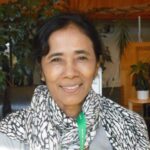 2014, Myanmar, WFI Alumni
2014, Myanmar, WFI Alumniwaiwaikyaw2007@gmail.com
Wai Wai Than completed a 6-month Fellowship in March 2015. During her six-month Fellowship Ms. Than studied the pathways of invasive species-invasion, how to detect them at the ports, quarantine laws and documentation systems, risk assessment, and awareness and public participation in those activities. Wai Wai was funded in part by a fellowship award she received from the International Tropical Timber Association. In 2017 she retired from the Forest Research Institute in Yezin, Maynmar. Currently she is writing articles about the environment and learning about Buddhism.
Nathan Trushell | Australia
 2007, Australia, WFI Alumni
2007, Australia, WFI Alumni
helsnath@gmail.com
Nathan Trushell finished his WFI International Fellowship Program in 2008. During his six-month Fellowship from 2007-2008, Nathan explored opportunities and potential strategies to promote and brand forest industries. Currently Nathan is the CEO of VicForests, Victoria, Australia and a non-executive Director of Responsible Wood.
John Turland | Australia
 2006, Australia, WFI Alumni
2006, Australia, WFI Alumnijohn.turland@yahoo.com
John completed a WFI Fellowship in 2006-2007 and studied North American approaches to growth and yield modeling, and harvest scheduling approaches in uneven-aged mixed species forests. After the Fellowship John returned to the USA, and worked as a Forestry Management Analyst with Washington State DNR; a Forest Economist with RISI’s international timber group; and 6 years with TIMO GreenWood Resources Inc, initially as a Financial Analyst then as Director of Resource Planning & Analysis, including 2 years based in China. In 2016 John returned to New Zealand and has established a forestry consultancy company, IFIM Consulting Ltd. He specializes in providing a wide range of technical forestry services including investment analyses, resource assessments, growth and yield modeling, forest modeling, and valuations.
Dr. Vincent Upton | Ireland
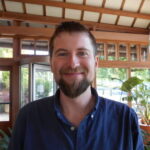 2014, Ireland, WFI Alumni
2014, Ireland, WFI Alumnivupton@gmail.com
Dr. Vincent Upton completed a six month Fellowship in November 2014. Vincent is a researcher from Ireland who works in the rural economy and development program in Teagasc, the Irish agriculture and food development authority. Vincent trained as a forester in University College Dublin before working with a number of private and public forest management and research organizations. His research focuses on the economics and valuation of forests and forest ecosystem services and he examined public preferences and values for afforestation while completing his PhD from University College Dublin. During his 6 month WFI fellowship, Vincent focused his research on how forest policy and management in the Pacific Northwest account for ecosystem services.
J. Rene Valdez Lazalde | Mexico
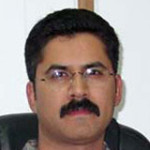 1994, Mexico, WFI Alumni
1994, Mexico, WFI Alumnivaldez@colpos.mx
During his Fellowship in 1994-1995, Rene worked as a country Information Specialist and conducted research for WFI clients. He also authored the WFI’s Mexico Country Report. After his Fellowship, Rene completed a Ph.D. in Forest Management and GIS at Colorado State University. Rene is an full time Professor at Colegio de Postgraduados in Texcoco, Mexico. In his work, Rene teaches postgraduates and does research on forest management and geomatics.
Rodolfo Vieto | Costa Rica
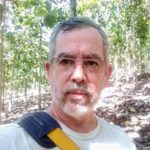 2019, Costa Rica, WFI Alumni
2019, Costa Rica, WFI AlumniRodolfo Vieto is a forester and forestry economist who is passionate about the design and implementation of efficiency-seeking decision support systems, strengthening forestry value chains, and promoting harvest scheduling for optimal forestry/agroforestry resource management and valuation. Rodolfo’s other interests include rural endogenous natural and cultural resource management and conservation processes, participatory rural development and conservation project design and evaluation, environmental conflict characterization and management, teaching (economics, tropical ecology, and computers in natural resources), and guiding academic and thematic tourism. Rodolfo holds a Bachelor of Science in Forestry from the Technological Institute of Costa Rica and a Master of Science in Forest Resources from the University of Idaho. During his Fellowship, Rodolfo will work on strengthening Central American sustainable forestry and agroforestry best practices and value chains, adding value to the forest through efficiency seeking management approaches and additional and innovative self-empowering “eco-cultourism” value chains.
Katri Vuollet | Finland
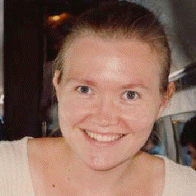 1994, Finland, WFI Alumni
1994, Finland, WFI AlumniJasjit Walia | India
 2005, India, WFI Alumni
2005, India, WFI Alumni
jasjitw@gmail.com
Jasjit Walia is from the Indian Forest Service where he is the CEO of Ecotourism for his region, Himachal Pradesh. Jasjit was the first Indian to participate in WFI’s Fellowship program in 2005-2006. Jasjit researched environmental services, which he feels holds great promise for his Himalayan State of Himachal Pradesh in northern India.
Chiao-Ping Wang | Taiwan
 2017, Taiwan, WFI Alumni
2017, Taiwan, WFI Alumni
cpwang@tfri.gov.tw
Chiao-Ping Wang finished her WFI Fellowship Program in 2017. During her time in Portland she focused in developing a conceptual framework of urban ecosystems (Final Presentation: From Urban Forestry to Urban Ecology). After her program resumed her work as an Associate Researcher at the Taiwan Forest Research Institute (TFRI) in Taipei, Taiwan as a soil scientist. She reported that she brought back many great ideas from the USA that are inspiring her work implementing a Long Term Ecological Research site in the urban forests of Kaoshiung.
Guangyu Wang | China
 1997, China, WFI Alumni
1997, China, WFI Alumni
guangyw@hotmail.com
Guangyu is a Research Associate in the Faculty of Forestry at the University of British Columbia, Canada. He is currently involved in several China-Canada related research projects on integrated watershed management, climate change mitigation and adaption, and the development of China’s national sustainable forest management system and forest certification. The research project “The Development of China’s Forestry Sector and its Implications for Canada” with Canadian International Council will provide several strategies for the Canadian forestry industry to promote wood products to China, and how to integrate with China in the international market. Jason was a Fellow in 1997-1998.
Lanhui Wang | China
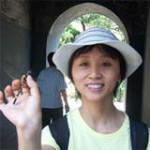 2008, China, WFI Alumni
2008, China, WFI Alumniwang_lanhui@hotmail.com
Ms. Lanhui Wang is a faculty member in the Department of Statistics, School of Economics and Management, at Beijing Forestry University. She has been teaching there since July 2002 and lectures on statistics and econometrics, forecasting, and decision-making in economics. Ms. Wang completed her one-year fellowship at the WFI from 2008-2009, where she studied forecasting for timber consumption and the wood products trade in China.
Pei-jung Wang | Taiwan
Xiaoli Wang | China
 2005, China, WFI Alumni
2005, China, WFI Alumnixmhuwang@yahoo.com
Xiaoli Wang is a forestland and forest tenure administration officer at the State Forestry Administration in Beijing, China. Since 1997 she has worked making national policies, dealing with forest tenure conflicts across the provincial boundary, and training and supervising officials on implementing law, polices and regulations on forest land and forest tenure administration. During her fellowship in 2005-2006, Xiaoli conducted research sponsored by INBAR on policy recommendations for developing forestland and bamboo resource tenures systems in Africa and Asia.
Adam Wasiak | Poland
 2016, Poland, WFI Alumni
2016, Poland, WFI Alumni
adamwasiak1966@gmail.com
Adam is from Poland and completed his Fellowship at WFI in 2016. During his program, Adam research project was on Sustainable Forest Management in Public Forests (Poland vs Oregon). Currently Adam works as the deputy director at the Bureau for Forest Management and Geodesy in Poland where he is responsible for the performance of forest management plans, the national forest inventory, and updating forest resource assessments.
Chia-Chen Wu | Taiwan
 2011, Taiwan, WFI Alumni
2011, Taiwan, WFI Alumnichiachen@tfri.gov.tw
Chia-Chen Wu is a research assistant with the Taiwan Forestry Research Institute in Taipei. He came to WFI for a 10-month Fellowship in 2011 to look into traditional and modern methods of tree breeding. Visiting dozens of tree breeding operations and interviewing many laboratories, Chia-Chen came away with knowledge of how U.S. forestry and forestry-related organizations use molecular biology in their tree breeding programs.
Jialu Xie | China
 1993, China, WFI Alumni
1993, China, WFI AlumniJialux@yahoo.com
Mr. Xie is the only Fellow to have completed two Fellowships, ten years apart. In 2004 he worked with WFI for one year researching forest certification schemes and their applicability to China.
Dr. Shouxin Xie | China
 2008, China, WFI Alumni
2008, China, WFI Alumnixieshouxin@forestry.gov.cn
Dr. Shouxin Xie completed a year-long fellowship at WFI in December 2009. Dr. Xie joined WFI from the China State Forestry Administration in Beijing, where he is the Division Director for the Department of Forest Resource Management. Dr. Xie supervises and manages forest harvest issues across China, and is a key player in making forest policy for the country, including establishing forest harvest levels, policy implementation, harvest auditing, and stopping illegal harvest. During his fellowhip, Dr. Xie studied many different aspects of sustainable forest management systems in the U.S. Dr. Xie learned various perspectives on forest policy and management in the Pacific Northwest that he takes home for recommendation to China’s forestry sector.
Min-chung “Galy” Yang | Taiwan
 2003, Taiwan, WFI Alumni
2003, Taiwan, WFI Alumnigaly.yang@gmail.com
Min-chung “Galy” Yang (Taiwan) is an IT specialist who has provided data solutions for a variety of forestry, agricultural agencies, and NGOs. He was the Research and Development Manager for Achieve Made international Limited for a number of years, before moving to Shenzhen, China, where he works for Ayla Networks.
Sue Sem “Michelle” Yap | Malaysia
 2017, Malaysia, WFI Alumni
2017, Malaysia, WFI Alumnishines_0622@yahoo.com
Sue Sem “Michelle” Yap from Malaysia finished her WFI Fellowship Program in 2017. During her time at WFI she explored the potential and the mechanisms of regulated sport fishing within the forest reserves in Sabah through the lens of the Pacific Northwest’s experience. Michelle returned to work for the Heart of Borneo conservation project in Malaysia at the Sabah Forestry Department. This initiative focuses on the management of protected areas and one of her directives is to determine alternative revenue streams in these forest reserves. She will be focusing on conservation activities such as forest rehabilitation and developing ecotourism facilities this year. Her WFI project findings on how to implement sport fishing inside a forest reserve have been approved by the Sabah Forestry Department and are in the process of being implemented.
Ghazala Yasmeen | Pakistan
 2010, Pakistan, WFI Alumni
2010, Pakistan, WFI Alumni
ghazalas1@hotmail.com
Ghazala completed her one-year Fellowship at the end of August 2011. Ghazala studied the relationship between forest fires and climate change. Her focus was in trying to determine if there was a corollary effect of increased incidence and severity of forest fires with increased temperate over time.
Ruo-Yun “Zoe” Yeh | Taiwan
 2014, Taiwan, WFI Alumni
2014, Taiwan, WFI Alumnioeyeh@tfri.gov.tw
Zoe completed a six month Fellowship in November 2014. Zoe is from Taipei, Taiwan and works for the Taiwan Forestry Research Institute. She is an assistant research fellow in the Division of Wood Cellulose, responsible for managing the Forest Products Chemistry Laboratory. Her research interest is in wood and paper chemistry, chemical utilization of non-wood forest products, fungal secondary metabolites, and prevention of paper microbial degradation. During her six month Fellowship, Zoe studied the production of essential oils from forest products and how that related to sustainable forest management.
Lei Yu | China
 2016, China, WFI Alumni
2016, China, WFI Alumni
cafyulei@126.com
Lei Yu is from China and came to WFI as an International Fellow in 2016. During her 6-month fellowship he focused his research on Research Centers in the U.S. and China Differences and Lessons. After his fellowship, Lei went back to working for the Chinese Academy of Forestry in Beijing, where he manages two of their research centers.
Yanping Zhang | China
 2005, China, WFI Alumni
2005, China, WFI Alumnizhang99@163.com
Yanping is the Chinese Academy of Forestry’s Chief Expert on Forest Cultivation. During his Fellowship in 2005, Dr. Zhang researched the seedling industry, as China has ambitious plans to reforest and afforest large areas for both commercial wood products and soil protection. Dr. Zhang was the first Chinese Fellow to come through a joint-cooperation agreement with the Department of International Cooperation at the Chinese Academy of Forestry.
Dr. Linsen Zhao | China
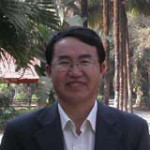 2007, China, WFI Alumni
2007, China, WFI Alumnilinsen_zhao@yahoo.com
Dr. Linsen Zhao is a professor in Landscape Architecture at the Southwest Forestry College in Kunming, Yunnan, China. Linsen’s background is in silviculture, however, he has been working in urban forestry since 2001. During his Fellowship in 2008, Linsen researched social issues related to urban forestry, and was particularly interested in public participation in planning, planting and maintaining urban forests.
Dr. Min Zhao | China
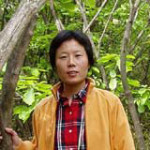 2008, China, WFI Alumni
2008, China, WFI Alumnilinsen_zhao@yahoo.com
Dr. Min Zhao is an Associate Professor at Shanghai Normal University, in Shanghai, China. Her major research revolves around the impact of global climate change on terrestrial ecosystems, with an emphasis on forest carbon cycles. She completed a one year Fellowship from 2008-2009 conducting research on methods for estimating forest carbon cycles for urban forests and urban forest functions.
